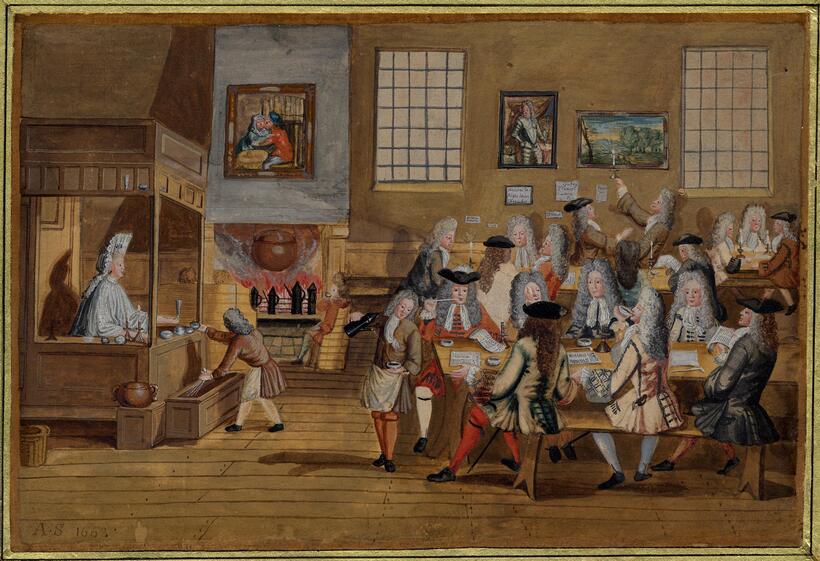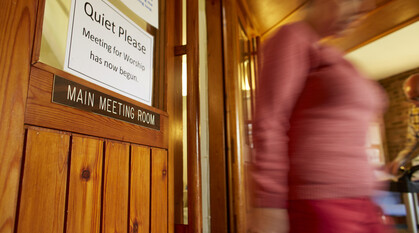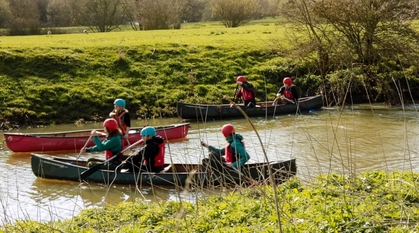Lloyd's of London: underwriting exploitation?
Growing from a small 17th century coffeehouse to a gleaming glass and metal financial headquarters today, Lloyd's of London has played a role in 300 years of British history, including the transatlantic slave trade. But are their actions in the present in line with what they have to say about that history?

When I ran workshops as part of the Exploring Faith and Climate Justice course in 2023, we talked about how the roots of our present-day climate issues could be traced back to historic practices of exploitation and extraction. I didn't expect that I would soon find such a clear example in my own campaigning work.
Quakers in Britain had joined the Insure Our Future coalition to organise a campaign focused on Lloyd's of London. Lloyd's is an insurance marketplace (unrelated to the bank with a similar name) offering a structure within which companies can offer insurance for all kinds of risk – including the risk involved in developing a new fossil fuel project.
Despite their key role in the financing of new fossil fuel projects, Lloyd's has no policy on oil and gas insurance, allowing their members to continue offering insurance to fossil fuel extraction that clearly runs counter to building a safe and liveable future.
Many of the projects that are up for insurance on the Lloyd's market would not only be destructive in terms of their carbon emissions but also would be immediately harmful in their construction – for example, the proposed East African Crude Oil Pipeline (EACOP), which would displace people along its route from their homes and farmland as well as threatening important sources of freshwater.
Despite drawing increasing attention from campaigners, Lloyd's has yet to shift its fossil fuel policies or rule out specific projects. So it was intriguing to find out that my colleague Edwina Peart, Equity and Justice Lead, had recently been in touch with Lloyd's for a completely different reason, as part of an event they held to share their new commitments on reparations. That conversation with Edwina prompted me to look into that history and draw the links with Lloyds' practices today.
Lloyd's and the slave trade
The transatlantic slave trade was the largest forced migration in history. People were taken from Africa to the Caribbean, North, Central and South America by boat, crammed into tight conditions with inhumane treatment from the crew and harsh punishment for any kind of resistance. An estimated 2 million people died on this journey; those who survived were sold into slavery on arrival.
This trade made many Europeans, including British people, very wealthy. This wealth flowed into insurers' pockets too; the late 1700s and early 1800s were considered a golden age of marine commerce because the many ships crossing the Atlantic all needed insurance. Just the same as today, the main place to buy insurance was Lloyd's of London.
Lloyd's insurers knew what happened on those ships that crossed the Atlantic. Insurance policies for slaving voyages had a unique clause that covered damage to the ship or “devaluation" of the enslaved people due to insurrection.
There was even a widely publicised court case over whether a ship's captain could claim financial compensation for the death of slaves who he had thrown overboard to conserve water supplies; the eventual conclusion was that he couldn't, because it was his poor management that had led to the deaths, but there was never any legal justice for the people who had died.
In 1807 the British slave trade ended. Lloyd's continued to insure shipping of cotton from the US, which abolished slavery almost 60 years later.
Response in the present
Lloyd's have formally apologised for their links to the transatlantic slave trade and have committed £52 million to various initiatives, including investing in more diverse recruitment. (Their 2023 profit was £5.9 billion; many responding in the media described their reparations commitment as inadequate.)
We discuss in the Exploring Faith and Climate Justice booklets what reparations can mean. Money can be a part of it, but money doesn't change everything. If we truly want to repair the damage of the past, we must consider what in our practices today can be shifted to build a fairer world.
When we look at Lloyd's, it's clear that there are practices that could shift to build a fairer world. If they ruled out insuring projects like EACOP, they could make it much harder for extractive, destructive fossil fuel projects to go ahead.
What do you think?
Is money an effective form of reparations, and is the commitment that Lloyd's have made adequate? Or do you think there are other things Lloyd's could do to address their historic role in the transatlantic slave trade and build a fairer world? Write to us at climatejustice@quaker.org.uk if you'd like to chat about the Insure Our Future campaign.
To find out more about this topic, you can also:
- watch the recorded version of our workshop on this topic from Yearly Meeting
- read the Exploring Faith and Climate Justice booklets
- visit the Insure Our Future and StopEACOP website


